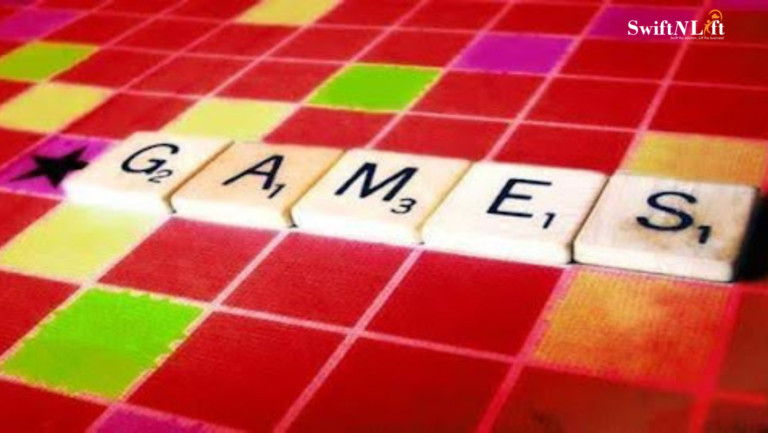
“Unlocking Minds through Play: Where Education and Fun Collide 🚀🎮 #GameBasedLearning”
Games have played an integral role in human culture for millennia. They serve not only as sources of entertainment but also as powerful tools for learning and personal development. In the realm of education, the value of games transcends mere pastime activities. This article explores the multifaceted and intrinsic values of games in education, emphasizing their potential to foster cognitive, social, emotional, and ethical growth.
I. Cognitive Development
- Problem Solving and Critical Thinking: Games often present players with complex challenges and puzzles that require creative problem-solving and critical thinking skills. Whether it’s deciphering a strategy in chess or solving intricate riddles in an adventure game, players engage in cognitive processes that are transferable to real-world scenarios.
- Learning Through Failure: Games encourage trial and error, teaching students to learn from their mistakes and adapt their strategies. This iterative process is essential for intellectual growth and resilience.
- Complex Systems Understanding: Many games, particularly simulation and strategy games, simulate complex systems. Interacting with these systems helps students understand cause-and-effect relationships, encouraging systems thinking.
II. Social Development
- Collaboration and Communication: Multiplayer games often require teamwork and effective communication. Students learn how to collaborate, delegate tasks, and communicate their ideas with peers, fostering important social skills.
- Conflict Resolution: Games can also be arenas for conflicts, but they provide safe spaces for students to practice conflict resolution, negotiation, and compromise.
- Diversity and Inclusivity: Some games feature diverse characters and narratives, promoting empathy and understanding of different cultures, perspectives, and backgrounds.
III. Emotional Development
- Emotional Regulation: Games can elicit a range of emotions, from excitement to frustration. Learning to manage these emotions in a controlled environment helps students develop emotional regulation skills.
- Resilience: Facing challenges in games and overcoming them cultivates resilience, a trait that can be applied to academic and life challenges.
- Empathy: Story-driven games often immerse players in compelling narratives, enabling them to empathize with characters and better understand the emotions and experiences of others.
IV. Ethical Development
- Moral Dilemmas: Many games present players with moral dilemmas, forcing them to make ethical decisions. These experiences prompt reflection on values and ethics.
- Consequences of Actions: Games often feature consequences for in-game actions, helping students understand the real-world implications of their choices.
- Understanding Complexity: Some games explore complex societal issues, such as poverty, discrimination, or environmental challenges. Playing these games can encourage critical thinking about these issues and inspire students to engage with them in meaningful ways.
V. Motivation and Engagement
- Intrinsic Motivation: Games are inherently motivating. They offer a sense of achievement and progression that can inspire students to engage with subjects they might otherwise find dull or challenging.
- Flow State: Games often induce a state of “flow,” where students become fully immersed and deeply focused on a task. This state is conducive to optimal learning and performance.
- Personalized Learning: Educational games can adapt to individual students’ abilities and pace, providing a personalized learning experience.
VI. Practical Skills
- Digital Literacy: In an increasingly digital world, games can enhance students’ digital literacy, teaching them how to navigate technology effectively and responsibly.
- Hand-Eye Coordination: Action games and simulations can improve hand-eye coordination and fine motor skills.
- Resource Management: Many strategy games involve resource management, teaching students skills that are relevant in various real-life contexts.
Challenges and Considerations
While the values of games in education are substantial, there are also challenges and considerations to address:
- Screen Time: Excessive screen time can have negative health consequences, so it’s crucial to balance game-based learning with other activities.
- Game Selection: Not all games are suitable for educational purposes. Teachers and educators must carefully select games that align with learning objectives and age-appropriateness.
- Assessment: Measuring the educational impact of games can be challenging, requiring innovative assessment methods.
- Equity: Access to technology and educational games can be uneven, creating disparities in educational opportunities.
The integration of value of games into education offers a holistic approach to learning that transcends traditional classroom methods. From cognitive and social development to emotional growth and ethical understanding, games provide a rich and immersive learning experience. However, effective implementation and evaluation are essential to harness their full potential. As we navigate the evolving landscape of education, recognizing the intrinsic value of games can lead to more engaging, effective, and meaningful learning experiences for students of all ages. By embracing this dynamic tool, we can empower future generations with the skills and insights they need to thrive in an ever-changing world.
– Kaumodaki Lonkar



